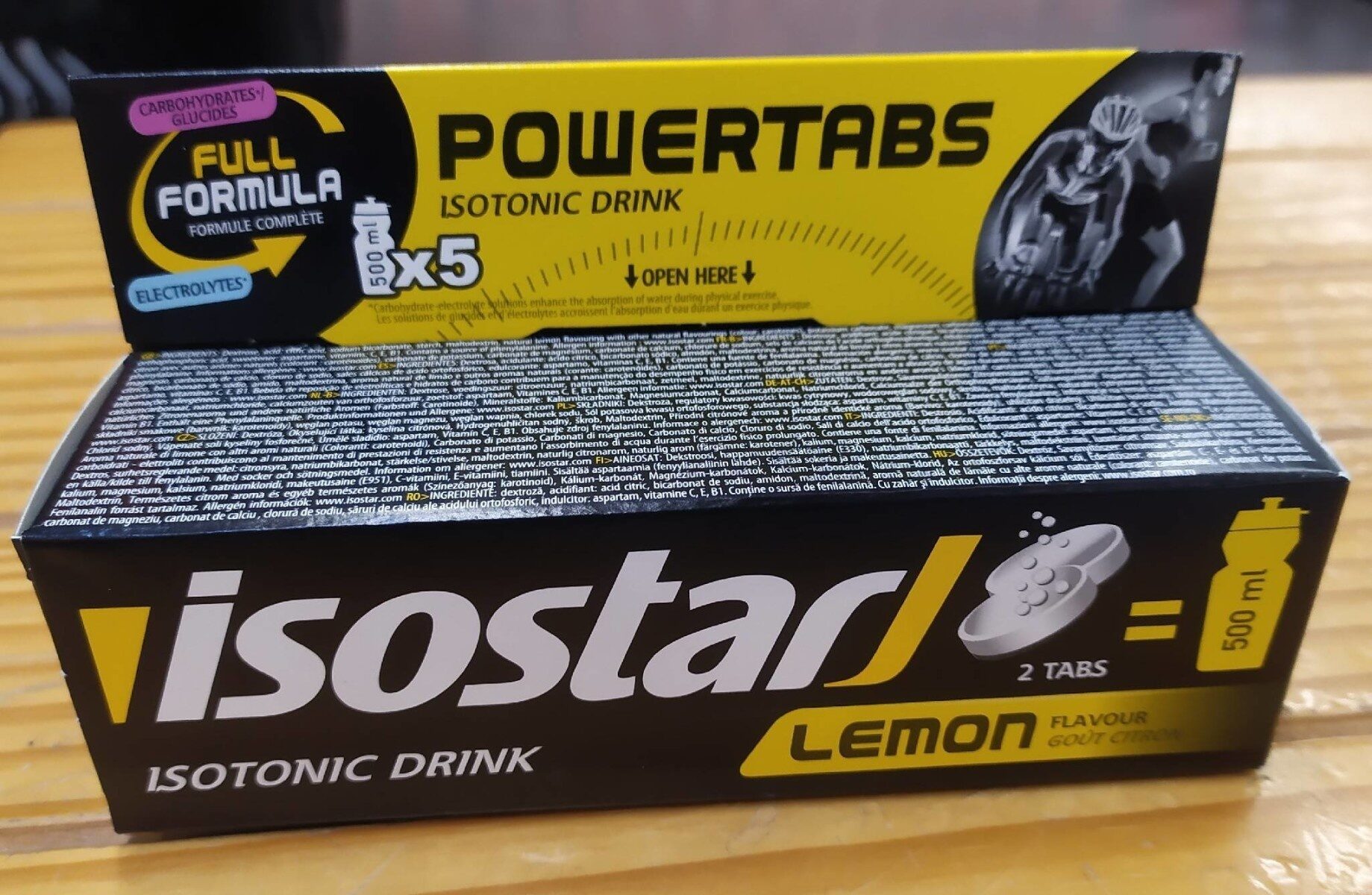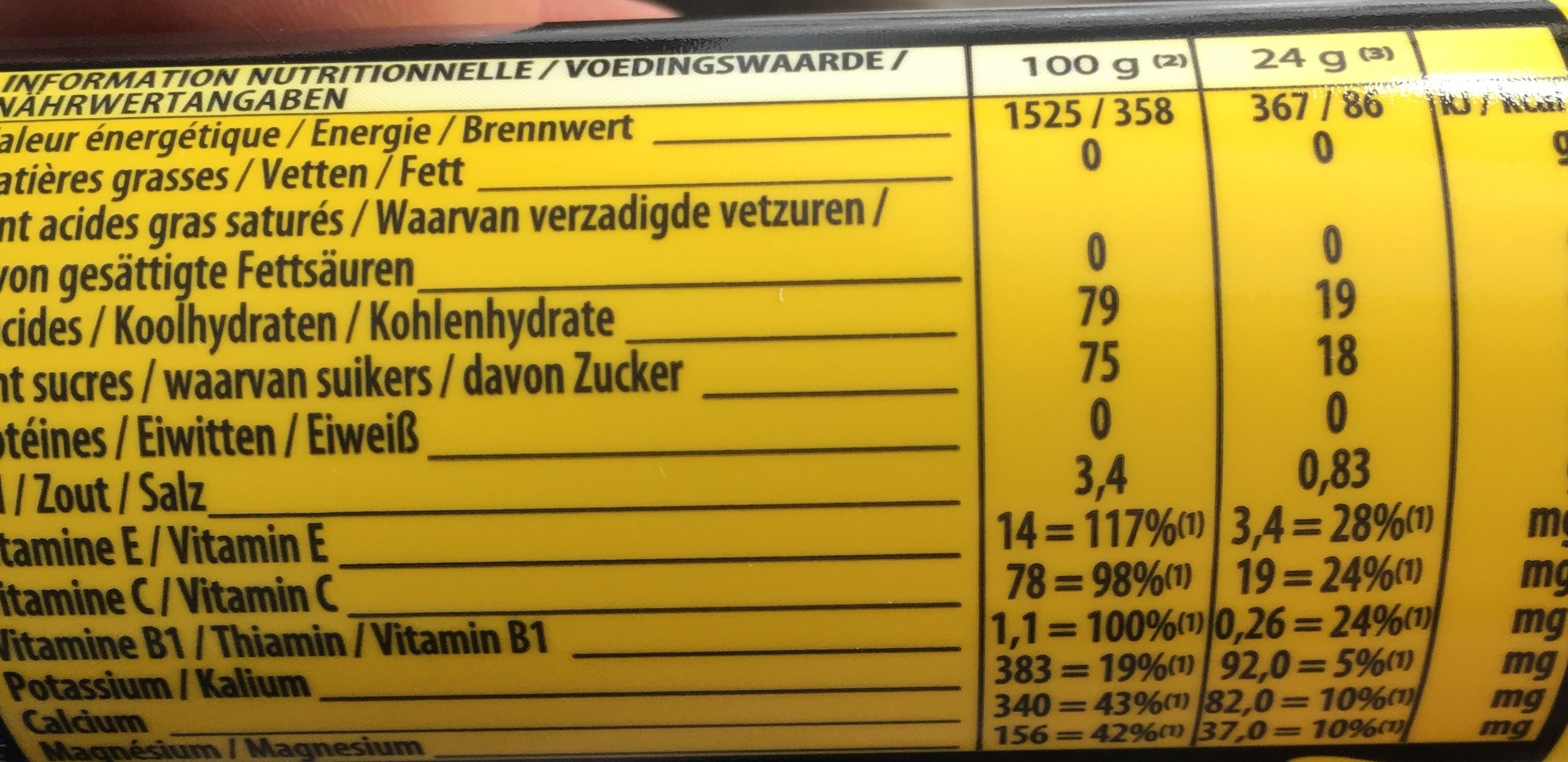Powertabs isotonic drink - Isostar - 120 g
This product page is not complete. You can help to complete it by editing it and adding more data from the photos we have, or by taking more photos using the app for Android or iPhone/iPad. Thank you!
×
Barcode: 7612100026748 (EAN / EAN-13)
Quantity: 120 g
Brands: Isostar
Categories: Beverages, Artificially sweetened beverages, Dietary supplements, fr:Boissons isotoniques, fr:Boissons pour le sport
Labels, certifications, awards:
Green Dot
Link to the product page on the official site of the producer: https://www.isostar.fr/tablettes-comprim...
Countries where sold: France, Switzerland
Matching with your preferences
Environment
Packaging
Transportation
Report a problem
Data sources
Product added on by openfoodfacts-contributors
Last edit of product page on by packbot.
Product page also edited by beniben, kiliweb, scanbot, yuka.SHI4WkhJOERnY3NSZ3NBQzl4TDh4L0o4eTVLS0JVU3RCYk1XSWc9PQ.










